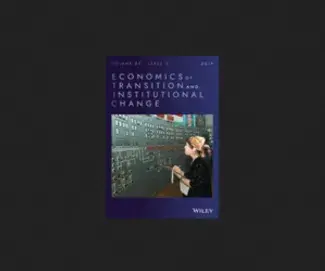
The economics of the Syrian refugee crisis in neighbouring countries: The case of Lebanon
Par Anda David, Mohamed Ali Marouani, Charbel Nahas and Björn Nilsson
Abstract
In this article, we investigate the effects of a massive dis-placement of workers from a war‐torn economy on the economy of a neighbouring country. Applying a general equilibrium approach to the Lebanese economy, we explore effects from various components of the crisis on the labour market, the production apparatus and macroeconomic indi-cators. Along with previous literature, our findings suggest limited or no adverse effects on high‐skilled native work-ers, but a negative impact on the most vulnerable Lebanese workers. When aid takes the form of investment subsidies, significantly better growth and labour market prospects arise, recalling the necessity of complementing humanitarian aid with development aid to succeed in achieving long‐term objectives. This may however not be politically viable in a context where refugees are considered as temporary.